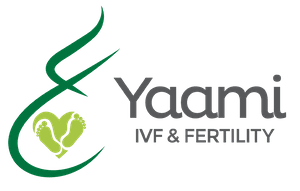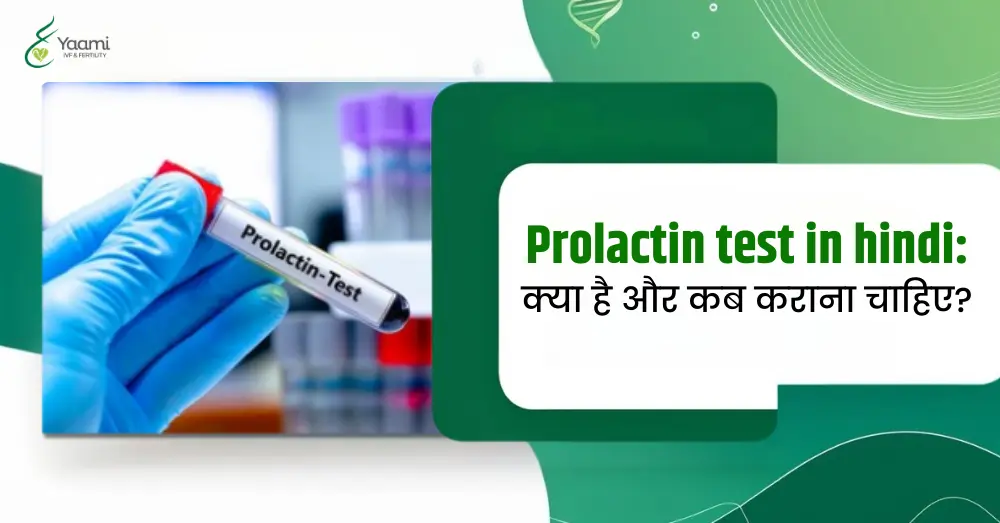In today’s world, pregnancy complications have become increasingly common. Despite this fact, most of the people are unaware of the real factors that are responsible for this problem.
While aspects like lifestyle, stress, and hormones are often discussed, there is one significant factor that many people are not informed about, and that is low AMH Levels!
AMH level plays an important role in pregnancy. If a woman has a low AMH level, she may face difficulties in conceiving.
But do you know why AMH is crucial in pregnancy?
AMH (Anti-Müllerian Hormone) is a hormone that indicates the total egg count present in women’s ovaries. If AMH levels are low, the chance of getting pregnant also decreases. In short, AMH levels mirror your ability to conceive.
AMH levels are directly connected with your age factor, which means the higher your age is, the lower your AMH. The concern of low AMH becomes more intensified after the age of 35, however, due to the transformation in lifestyle habits, this condition is becoming more common among younger women.
As a result, conception can be more complicated. While there is no guaranteed way to increase AMH levels, opting for certain habits can improve AMH levels and boost fertility.
Let’s dive deeper into what exactly AMH levels are and how to increase AMH Levels for a successful pregnancy.
Ways to Increase AMH Levels
However, there is no definite way to increase AMH levels directly as they decline with age, but including appropriate food, good lifestyle practices, and supportive supplements in your diet can help you boost fertility.
Adding the right food to your meal such as leafy greens, nuts, seeds, eggs, fish, berries, whole grains, legumes, and citrus fruits into your diet can make a big difference and give you better results.
Dr. Swati Singh, the expert at Yaami Fertility Center, shares that the right guidance and expertise can make a big difference and improve your reproductive health.
Let’s explore all these Factors in detail and see how to increase AMH Levels naturally and how medical guidance can help improve AMH levels.
1. Diet
Healthy food is the ultimate way to a healthy mind and body. Therefore eating the right foods can also help you to improve AMH levels and boost fertility.
Some of these foods including leafy greens and citrus fruits are great for folate (vitamin B9 and folic acid), which helps to maintain egg quality while fatty fish, nuts, and seeds contain omega-3s and are essential to maintain ovarian health.
Eggs, dairy, and mushrooms are great sources of vitamin D, which helps with egg formation.
If we talk about berries, bell peppers, and almonds all these have a high amount of antioxidants which are like a protector to eggs. In addition, including whole grains and legumes as a part of your diet ensures a sufficient amount of fiber to keep hormones in balance.
A healthy, nutrient-rich diet can make a real difference in reproductive health.
2. Exercise
As we all know regular exercise plays a significant role in our health but little did you know that it can also boost your reproductive health. No wonder, exercise is a great option to boost your AMH levels.
Basic activities such as yoga and stretching increase blood circulation to the ovaries and relieve stress. On the other hand, strength workouts (like squats and lunges) help to maintain hormones.
Brisk walking, cycling, swimming, and other heart-pumping activities can also help in enhancing ovarian health by maintaining your weight.
You can also add stability and core training to boost the pelvic muscles and improve your AMH levels. If you are not comfortable with heavy workouts then doing simple breathing exercises or meditation can also be helpful.
Undoubtedly, a proper schedule of exercise, a nutritious diet, and quality rest can naturally increase AMH levels and overall fertility.
3. Supplements
If you have tried every possible natural way to increase your AMH such as maintaining a healthy lifestyle, balanced diet, and regular exercise, but haven’t seen positive results, it’s time to go for supplements.
Including certain supplements in your routine can also help you to support AMH levels. For instance, antioxidants like Coenzyme Q10 (CoQ10) can improve egg quality and ovarian formation, while DHEA may help women with reduced ovarian reserves by regulating hormones.
Meanwhile, Vitamin D, Omega-3 fatty acids, and Folate (Vitamin B9) are essential for reproductive health, promoting better egg development and hormone regulation.
A supplement named Myo-Inositol also supports ovarian health and enhances egg quality, especially for women with PCOS and low AMH.
However, these supplements should only be taken after consulting a doctor and as a last resort if natural methods do not show results.
4. Lifestyle
Daily habits play an important role in raising or lowering AMH levels. Small lifestyle changes can have a silent but significant impact. Having proper sleep (8-9) is necessary for reproductive health, so make sure to rest well.
Managing stress is also crucial, as high stress can lower AMH levels, so try to add yoga and meditation as part of your daily routine. Harmful toxins from plastics, processed foods, and chemicals can negatively impact fertility, so replacing them with the use of glass and copper vessels is important.
Also, limiting alcohol, caffeine, and sugary drinks and replacing them with herbal teas can support ovarian health. These simple lifestyle changes can help to increase AMH levels naturally.
5. Other tips
Apart from diet, exercise, and supplements, certain additional habits and therapies may help improve AMH levels naturally. For instance, acupuncture can help to stimulate blood flow to the ovaries and contribute to hormonal stability. Many women find that regular acupuncture sessions can improve ovarian function and potentially boost AMH levels. Similarly, natural healing methods such as Ayurveda and herbal treatments (under expert guidance) may also improve reproductive health.
Hydration and detoxification play a crucial role in maintaining reproductive health. Drinking plenty of water helps to enhance the body’s detox process, which can negatively impact ovarian function. Additionally, herbal detox teas like green tea or dandelion tea can facilitate in the body’s natural cleansing process, promoting better hormonal balance.
Conclusion
AMH levels have emerged as a major issue during pregnancy these days. Though there is no sure-shot treatment, AMH levels can be managed properly with lifestyle modifications. In this blog, we have discussed natural methods of how to increase AMH levels, such as diet, exercise, lifestyle modifications, and supplements—each of which can improve AMH levels.
However, if you’re unsure or have any questions regarding your AMH levels or fertility, our experts at Yaami Fertility are available to assist you. We offer you personalized solutions and support to ensure you reach the path of parenthood.
Do not hesitate to call!

Dr. Swati Singh (MBBS, MD – Obstetrics & Gynecology, DNB, FRM, Diploma in Reproductive Medicine and Embryology – Germany) is a leading Infertility Specialist and Gynecologist with over 18 years of experience. As Co-Founder and Senior Consultant at Yaami Fertility & IVF Center, Indore, she offers advanced fertility care including IUI, IVF, ICSI, and management of female reproductive disorders. Known for her compassionate and patient-first approach, Dr. Swati combines global training with deep clinical expertise. She is also actively involved in women’s health advocacy, medical research, and promoting awareness about reproductive wellness and fertility treatments.











